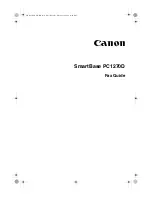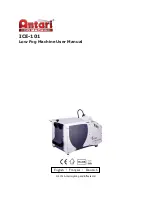
Preparation
8
Helpline Tel. No.: U.K. 08700 100 076 R.O.I. 01289 8333
Important information
General
L
Use only the AC adaptor included with this
product, noted on page 7.
L
Do not connect the AC adaptor to any AC
outlet other than a standard 220–240 V
AC outlet.
L
This product is unable to make calls when:
– The portable handset battery(ies) need
recharging or have failed.
– There is a power failure.
– The key lock feature is turned on.
– The call bar feature is turned on (only
phone numbers stored in the unit as
emergency numbers can be called).
L
Do not open the base unit or handset
other than to replace the battery(ies).
L
This product should not be used near
emergency/intensive care medical
equipment and should not be used by
people with pacemakers.
L
Care should be taken that objects do not
fall onto, and liquids are not spilled into,
the unit. Do not subject this product to
excessive smoke, dust, mechanical
vibration or shock.
Environment
L
Do not use this product near water.
L
This product should be kept away from
heat sources such as radiators, cookers,
etc. It should also not be placed in rooms
where the temperature is less than 5 °C or
greater than 40 °C.
L
The AC adaptor is used as the main
disconnect device. Ensure that the AC
outlet is installed near the unit and is
easily accessible.
Warning:
L
To prevent the risk of electrical shock, do
not expose this product to rain or any
other type of moisture.
L
Unplug this unit from power outlets if it
emits smoke, an abnormal smell or makes
unusual noise. These conditions can
cause fire or electric shock. Confirm that
smoke has stopped and contact an
authorised service centre.
Location
L
For maximum distance and noise-free
operation, place your base unit:
– Away from electrical appliances such as
TVs, radios, personal computers or
other phones.
– In a convenient, high and central
location.
Battery caution
L
We recommend using the battery(ies)
noted on page 6.
Use only rechargeable
battery(ies).
L
Do not mix old and new batteries.
L
Do not dispose of the battery(ies) in a fire,
as they may explode. Check local waste
management codes for special disposal
instructions.
L
Do not open or mutilate the battery(ies).
Released electrolyte from the battery(ies)
is corrosive and may cause burns or injury
to the eyes or skin. The electrolyte may be
toxic if swallowed.
L
Exercise care when handling the
battery(ies). Do not allow conductive
materials such as rings, bracelets or keys
to touch the battery(ies), otherwise a short
circuit may cause the battery(ies) and/or
the conductive material to overheat and
cause burns.
L
Charge the battery(ies) in accordance
with the information provided in these
operating instructions.
TCD340E(e).book Page 8 Thursday, June 9, 2005 9:50 AM









































